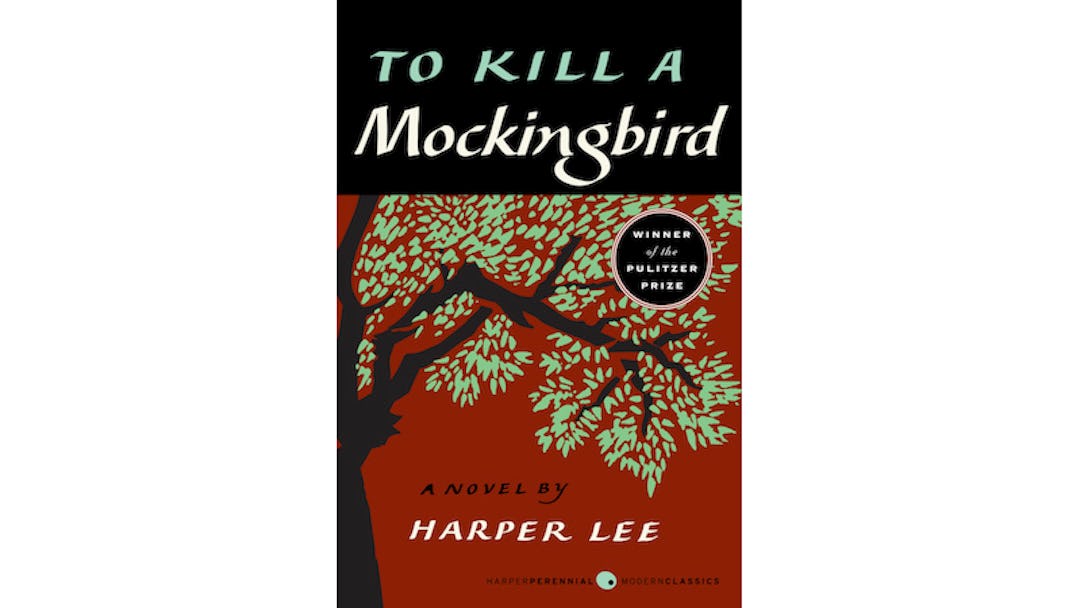In Marja Mills’ The Mockingbird Next Door: Life With Harper Lee, the reclusive author of American essential To Kill a Mockingbird opens up about her life through her friendship with Mills, a journalist from The Chicago Tribune. It is a book chock full of details regarding Lee’s extraordinary life, and how the success of Mockingbird allowed its author to live on her own terms, away from the glare of fame. While it has been pitched as the only book we’re getting that has the blessing of Harper Lee, according to the reclusive author herself, who released a statement on the work, it is unauthorized: “As long as I am alive, any book purporting to be with my cooperation is a falsehood.”
But amid all the revelations, I was struck by one throwaway line from the book. Mills, recording a conversation with Lee, wrote: “She said she felt lucky Mockingbird was published when it was. Much later, and it might have been classified as young adult fiction and never reached the audience, and all the adults, it did.”
Young adult fiction has been a hot topic lately, with the wild success of John Green’s The Fault in Our Stars reaching a mainstream audience through things like a New Yorker profile and a hit movie adaptation. Ruth Graham’s “Against YA” article on Slate led to a series of rebuttals, including our own, arguing for the joys of young adult literature and reading without snobbery… or just some wild, hilarious road-trip tale playing around with all the tropes, as written by young adult author Kathleen Hale.
However, as YA-come-lately as Graham’s piece was, there were truths in there that understandably got people talking. YA as a genre these days is saturating the market and has a chance to sell well and to connect with readers, but despite those markers of success, it still sits in the easily dismissible “kids zone” in the eyes of most readers — particularly when it comes to the shrinking pie of adults who are writing for large publications about books. Mainstream media doesn’t often cover YA with anything approaching respect or interest in the quality of the writing.
If To Kill a Mockingbird had been released even ten years later, it probably would have been sold as a kids’ book; if it were released now, there’s a chance it would even be marketed as middle grade, actually, considering the narrator is looking back on her life as a ten-year-old (although the novel’s subject matter is, at times, more mature than that classification tends to dictate). It wouldn’t have reached the audience that it has since its publication — which is just about every kind of person, I suppose. If you were making a list of ten American books that everyone should read, Mockingbird would be on it, easily.
It makes me think, a bit, of the work of Paula Fox — whose children’s books, including the Newbury Award-winning The Slave Dancer, are as tricky, difficult, and moving as her Jonathan Franzen-approved Brooklyn classic, Desperate Characters. They’re not spoken of in the same breath, and in some ways, that’s a shame; they’re both haunting, incredible works. I think about The Slave Dancer just as much as I occasionally yell out, “I’m desperate, desperate!” as a joke. And yet The Slave Dancer has had an easier time staying in print, as an award-winning children’s book. There’s honor in reaching a youthful audience. They’re alert, engaged, and demanding.
Websites like Entertainment Weekly have already wrestled with the idea of whether To Kill a Mockingbird is “YA” or not. Mockingbird has come in second on “Best YA of All Time” lists, losing out to the Harry Potter series and The Perks of Being a Wallflower. It all feels a bit fake, considering, again, that Mockingbird is one of the essential American texts of the last hundred years.
Lee is right that in another era, Mockingbird could’ve been relegated to the YA corner. There, it would surely have found an audience of children, learning its difficult lessons at a young age. That’s a good thing, but I’m not sure whether the story would’ve had the same impact on the country’s psyche and evolution. The gives and takes of genre classification mean something when it comes to which audience you’ll reach, and what that audience thinks about your work. America got a gift with Mockingbird, and we were equally lucky that it was sold to us as not only a book for kids, but as a book every American must read.
